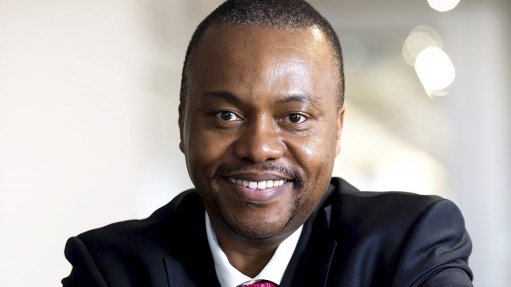
THEMBA MKHWANAZI A mining modernisation revolution is required, hinged on employing radical solutions to transform the mining industry to keep up with the times
Themba Mkhwanazi, CEO of diversified miner Anglo American’s Kumba Iron Ore sibsidiary, believes that a paradigm shift is needed to upend the current mining industry’s reliance on a generalised operating model that is rapidly becoming outdated and will ultimately lead to the demise of the industry.
Speaking at an event organised by mining networking platform Africa Mining Network earlier this month, he compared car pioneer and early production line developer Henry Ford’s vision of producing a replacement for horses as a form of transport to what is demanded of the local mining industry in its current state.
He added that, prior to the development of the first commercially produced vehicle – the Ford Model T – and during a time when horses were the most popular form of transport, Ford once said: “If I had asked people what they wanted, they would have said faster horses”. The Ford Model T went on to revolutionise the personal transport industry with a concept that completely changed how people got around. Mkhwanazi compared this statement to what was widely being undertaken in terms of the incorporation of modernisation and new methods into the mining industry, especially in South Africa, implying that the mining industry, without fully embracing modernisation and innovation, is, in its own right, trying to make a “faster horse”.
This operating model is being pursued because of a general fear of the unknown with regard to a move from trusted, but archaic, models that have been successful, but only during the mining boom.
Mkhwanazi conceded that the time was fast approaching when a revolution was required – employing radical solutions to transform the local mining industry to keep up with the times and ensure it remains relevant in a modernising world, thereby safeguarding its future existence.
He declared that South Africa needed a new paradigm for mining. However, he cautioned against simply “throwing technology at the problem”, noting that bolting technology onto an established business model would not revolutionise it. “If we do that, we will . . . only perpetuate our current century-old model and we will not take the country with us.”
For the mining industry to thrive, especially in South Africa, he said, there was no other choice but to forge ahead with modernising, investing and demonstrating that the local industry was changing and redefining itself.
Further, innovation and technology were only part of the story, he averred, adding that a true paradigm shift would change the way the industry perceived its world, involving “science, ethics, investment, politics, social impact, government and labour relations”.